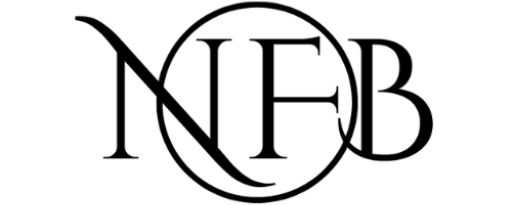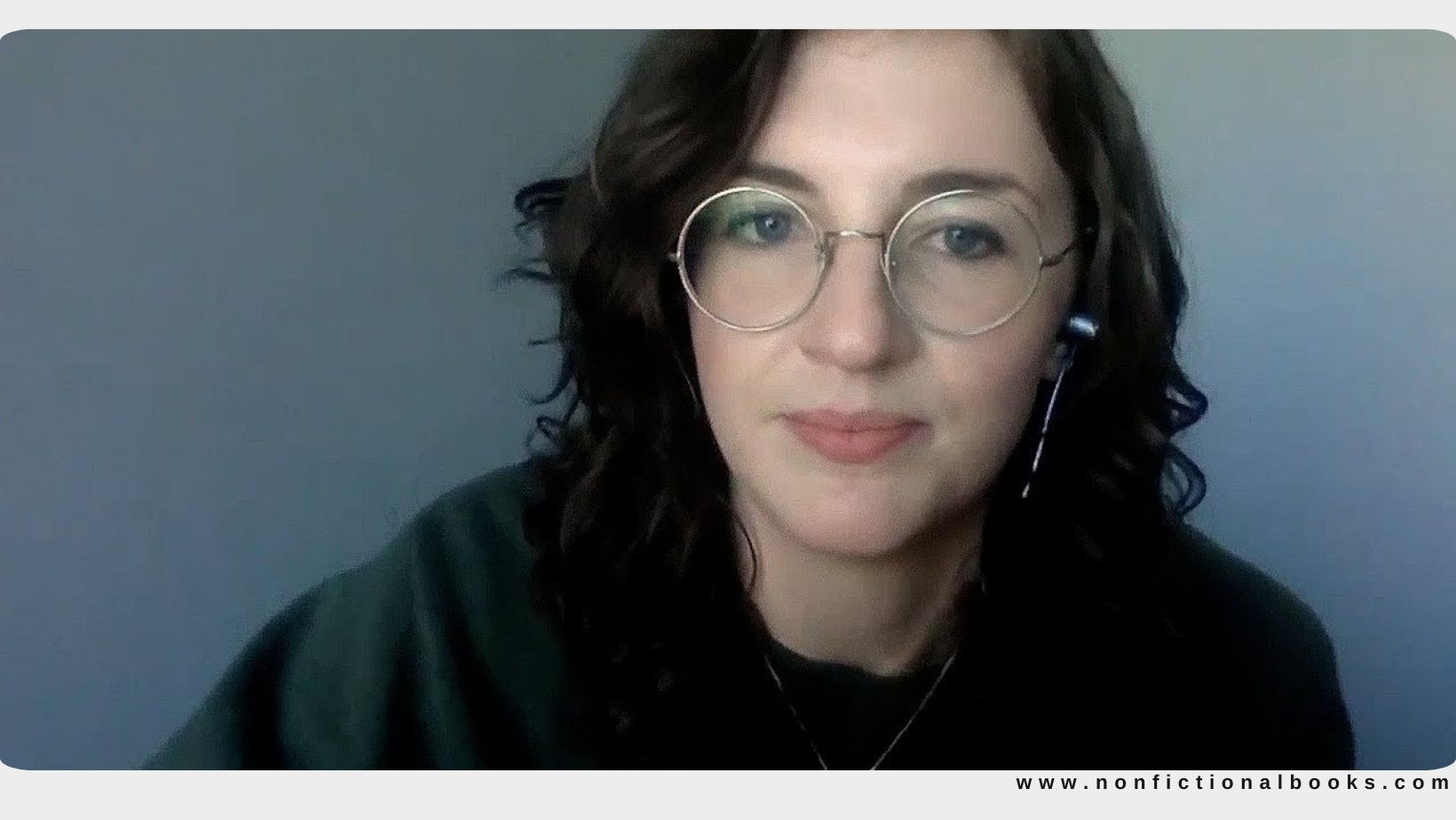About No Judgment Lauren Oyler Summary
The No Judgment Lauren Oyler Summary showcases an astute and perceptive mind. Oyler’s talkative prose style contrasts with her intellectual honesty; her tone is simultaneously sincere, lighthearted, and ironically self-deprecating. (Sometimes perhaps too much: a very short paragraph reads: “Just kidding. Something like that.”) She’s keeping the audience on the page exciting and rarely dull. However, one or two discussion points here seem very old, like the widely shared 2010 TED Talk on the importance of vulnerability; the Gossip website Gawker dying after the 2013 lawsuit; the online media landscape circa 2016; Berlin is a thing.
Perhaps a controversy, but the cultural discourse is moving frighteningly fast these days. In contrast, the pace of book publishing is extremely slow. This challenges literary agents and editors, who must try to bottle up the good material before it runs out of waste. Why is it taking them so long? Let us read No Judgment Lauren Oyler’s Summary. a refreshing book and promises an unfiltered look at the state of culture today.

Literary Critic Lauren Oyler Takes Aim at Online Reviews, Naive Populism, and the Cult of Authenticity
Lauren Oyler, an American literary critic who writes for Harper’s Magazine and The New Yorker, believes her partner is in danger. In My Perfect Opinions, one of her first nonfiction book’s eight previously unpublished essays, she declares, “I am a professional, and I am in danger.” She wonders whether popular digital platforms like Goodreads, where users can upload book reviews with minimal editorial filtering, will have long-term implications for the more thoughtful, rigorous literary criticism she gets paid to write.
These online communities lack intellectual prowess, which they make up for in sheer numbers. Do they want to reshape literary culture in their image? The answer appears to be yes. Oyler believes that in recent years, there has been a naive populism in commentaries on art and culture, based on the assumption that, since all taste is ultimately subjective, anything can be as good as anything else. This is evidenced, for example, in the insistence of some critics that Marvel Comics should be considered serious art.
“Reducing attractiveness in terms of taste and temperament is unquestionably the most boring way to get it right,” says Oyler. This tendency, a kind of altruism known as anti-elitism, is at the center of what she calls “today’s crisis in cultural criticism.” Oyler is talented at cutting through the hype and getting to the heart of things. In an essay, she calls out the pseudo-revelatory claptrap of TED Talks: “Their ingredients are so soluble that it’s the kind of thing you don’t notice has been present in tap water for centuries.”
In another, she highlights the hand-wringing discourse around “autofiction” from writers like Rachel Cusk and Sheila Heti, who support the ethics of putting real people in your novels: “It doesn’t matter whether it’s about me or you; it just has to be interesting.” In a profound reflection on wellness culture, Oyler recalls her struggles with various neurological illnesses (she suffered from bruxism, anxiety, insomnia, and a sleep disorder called “Exploding Head Syndrome”). It is avoided with the sarcastic quip: “Catharsis for me is boring for you.”
A thoughtful chapter on expatriate life in Oyler’s adopted city of Berlin (the setting of her 2021 debut novel, Fake Accounts) questions the fetishization of “authenticity” among a certain class of globe-trotting bohemians. She points out that the reality, in itself, is readily available: “The ubiquitous branding of international startups is as authentic as a restaurant that has been serving the same pork recipe since the 1500s. It’s how we live, how we eat, and how we get “around now.” What people especially want is the invigorating joy of novelty: “something different, new, or foreign, something that creates a gap in understanding that gets us there. Allows to imagine possibility”.
Summary
Here are the themes of six large essays in Lauren Oyler’s debut collection, No Judgment: gossip, criticism, Berlin, autofiction, vulnerability, and anxiety. But they’re really about living with instability—the way gossip forces us to balance our longing for social order with the questionable ethics of our spying on the lives of others, or the way in a foreign city, staying gives us a nest but never peace. Being comfortable socially or linguistically always attracts us to tourism. This is timeless, but Oyler understands how contemporary life has changed, distorted, or destroyed these old instabilities. That is to say, each essay is really, really about: the Internet.
You don’t need to be extremely online to understand or be affected by it, as Oyler admits she is. She notes that the Internet has fueled our distrust of information, diminished the critic’s authority, and created a culture where writers (especially women) are expected to reflect on their personal experiences. This has elevated autofiction to the role of the dominant literary form of the last 15 years. Social media has molded us into a culture where sharing our private lives—or, more accurately, artistic, curated sharing—has drawn us towards writing, where the line between truth and fiction is blurred.
Oyler argues that this now creates a literary culture that requires a broad understanding of the discourse to appreciate a work fully. Sally Rooney’s novel “Beautiful World, Where Are You?” might be fine on its own, but it’s better if you have Sally Rooney’s Discourse Awareness. So here we are at a time when Instagram has placed the stakes at the center of new criticism. And if this seems like a bad way to read things, well, Oyler suggests, harder—that’s how we’ve been reading. She writes, “The autofictional voice creating the illusion of a thin boundary between author and reader is similar to the effect created by social media.” Which, to be clear, is format precedent. But they both became popular in the anglophone world at the same time.
Given this, some Lauren Oyler sermon awareness may be in order. I’ve missed all kinds of Oyler-centric fights – who can hold out? (“Who can keep up?” is the central concern of our time.) But its prevailing theme is that critics at the New Yorker, Bookforum, the London Review of Books, and other specialized outlets have been merciless. (The title of her New York magazine profile was “Talking Shit with Lauren Oyler.”) Proof of her ruthlessness is in the negative reviews of writers who have attracted intense enthusiasm, such as Roxane Gay or Gia Tolentino.
But one thing you’ll notice right away about No Judgment by Lauren Oyler is that there’s no messiness to it. Is Oyler aware that the negative reviews have had an impact? Sure. Does she care? She doesn’t care—doesn’t care—but admits that caring too much about it is playing a different game than the critic. According to her, critics can only truly continue in their practice if they bravely take on Hardwicke’s “drama of opinion” and make every effort to ignore the growing demands of popularity.
That (the Internet), which looms over everything, is something that Oyler does not want to acknowledge as something separate from “real” life, but rather is a force that influences literary types around, whether you Like it or not—this is the water we swim in. She has been framed: it jeopardizes his status as a critic and puts her under the microscope as a novelist.
She reflects on how much of it accounts for her 2021 novel, Fake Accounts, in her essay on autofiction, coming to the conclusion that “the answer, for me, is 72 percent.” It’s a joke, but not even that – writers are now hyper-vigilant about how stories are reworked, how they are manipulated, and how those alterations and manipulations are publicly prosecuted.
When identity is all we have, ownership of the story becomes tricky, so it’s best to calculate closely. Oyler’s escape from this frustration is that art is always art, no matter what others apply to it: “The work of art creates a field of agency that is always separate from reality, within which the artist controls everything,” she says. But the artist doesn’t control everything that happens after she comes into the world, so much of what she writes is about things falling apart—a career, how little it can take to debilitate a person. Yes, it should be canceled.
This uncertainty within the Oyler—I don’t care what you think! But I can’t be unaware of what you’re thinking! – is amusing because it is often dialectical rather than an expression of ambivalence. In an essay on insecurity, she laments how a culture focused on trauma-related storylines forces writers to display their wounds for some nominal fee. (The word “for exposure” is brutally appropriate here.)
But the essay that follows is part of the genre—Oyler describes her anxiety, her grinding of teeth, her at-best-moderately-successful efforts to address it, and her disbelief toward him. She has done drugs, by the way, and she wants an internet-esque solution to it. (“I wanted a body hack. I wanted a weird move.”) However, Oyler aims to deliver all this with a flat, deliberately almost boring effect. She describes her concern but refuses to tell him. There’s no story, no tragic plot, just a series of dead ends.
The promotional rhetoric surrounding a book is usually irrelevant to a book review. But since Oyler has somehow pushed the text-is-all-that-matters view off a cliff, it’s perhaps worth noting that the PR around No Judgment by Lauren Oyler emphasizes that any essay in the book will first not be published. The message is that she’s not simply rehashing old book reviews, litigating old literary feuds, or rehashing cases that have already been debated online. – This book puts its integrity forward, which means striving to exist outside the limitations of the Internet. (At least until the reviews start running online.) It’s a strategy that reflects a certain arrogance—Lauren Oyler is not playing your game, Internet! But, again, Oyler thinks dialectically; she knows she can’t escape the game. She writes, “I have an outlet, many outlets, for payment, to discuss my reading.” “I’m a professional, and I’m in danger.” For now, I’m in danger. You don’t have to be a critic or a novelist to understand that uncertainty—just being online is enough. Who can blame us for trying to play with the ball? Who can blame us for desperately trying to avoid it?
Review
Why do people like to watch boxing? We admire the fighters: their courage and their footwork. It’s elegant yet brutal. It entertains. It is a form of vicarious violence—hitting and being killed by someone else—that taps into our primal desires.
Lauren Oyler made her name as a boxer. Her breakout essay on the Bookslut website famously begins, “I’ve always hated Roxane Gay’s writing.” Her reviews get attention partly because they voice criticism that one might find too political to express. Usually, that criticism is harsh. Usually, it’s fun. Even her 2021 debut novel, “Fake Accounts,” includes a 40-page parody of the fragmented novel form, which was especially prominent among women writers then. It goes on for so long that the reader has time to love it, hate it, be troubled by it, devote themselves to it, and ultimately admire its devilish commitment.
Now Oyler is back with “No Judgment,” a collection of eight essays written especially for the book. She has a sense of humor as well as an agile mindset. But fans won’t find much here to satisfy their banal appetite. Far from being inflammatory, the book is clear and grounded. Many essays here evoke the surprising thought, “This is the smartest thing I’ve ever read on this topic.”
The book begins with an introduction explaining that some of the essays were inspired by “the growing movement about misogyny and misconceptions spreading in cultural criticism and commentary.” Others focus on personal experiences. Topics include the evolution of Internet gossip, the flawed social network Goodreads, and the prevalence of the term “vulnerable” in art criticism. If there’s any unifying idea, it seems to be about how people misuse or absorb media and how annoying that is.
The essays are long and spontaneous, and the fare will be familiar to anyone who spends a lot of time online. Many of them include Twitter discourse from the past few years.
Martin Scorsese’s thoughts on the Marvel movies come to light, compared with the online sagas of writers Lauren Huff, Kathleen Hale, and Elizabeth Gilbert, each of whom has raised the ire of the online review community with varying results.
The first essay, “Embarrassment, Panic, Protest, Job Loss, etc.”, traces gossip throughout the 21st century, from the rise and fall of the website Gawker to #MeToo and the Whisper Network, and the notoriously anonymous source of “bad” List Media Men, which shook the magazine world in 2017. These themes are seamlessly integrated with additional references to history and literature, which form the structure of most of the essays in the book. At best, it feels like your smart friend is explaining something you’ve forgotten on the Internet, why it’s important, and what it means. Sometimes, it feels like your friend is over-explaining these things.
Oyler is brilliant and confident. Some of the explanations she has given in the book are excellent. For example, reading the film “Tar” in an essay titled “The Power of Vulnerability” reveals that it is not about cancel culture, as many critics wrote when it first came out, but more about what if a woman acted like a man? She writes: “We see Tar playing the role of a man the whole time, from rise to fall. We see that she is called Ustad, and most importantly, we see her have this amazing, unrealistic career that a woman like her would never have achieved. Not just because she’s a woman, but because she’s a woman who behaves like a man: arrogant, selfish, self-important, rude, which, on closer inspection, is downright fraudulent. It’s a refreshing way to think about film and sidesteps the clichés of cancellation.
In a similar vein, she suggests that the binary itself is false in an essay concerning the never-ending struggle between sincerity and irony, which was started by David Foster Wallace’s 1993 essay “E. Unibus Pleurum” and is repeated online every few years. “These contrasts have always been flimsy and untrue because irony and sincerity are nearly invariably present in complex works. It is possible to express emotions – or authentic or true—through irony.
The most ambitious essay in the collection assesses autofiction as a form rather than a genre. There are many interesting takes on Oyler’s work and the work of others, – Vladimir Nabokov, Sheila Heti, Sally Rooney, and others.
For example, I had never considered the difference between the reader’s projection of the author of autofiction and who the author is. The way the writer can play with this—either denying or contradicting the reader’s preconceived notions—is a very nice tool.
Still, the book’s scale cuts both ways. Although it reflects Oyler’s growth as a writer (you can’t be an edge lord your whole life), it lacks the boldness of his novel and magazine writing. It’s strangely safe. “TED Talks are stupid,” she writes.
These essays were written specifically for the book, meaning they didn’t run as magazine stories or be tied to news events. There are moments when I question why—that is, why is this a special topic? Why this series of small problems? Is there anything new or definitive in them?
Luckily, the execution is fresh enough that anyone can read it. And the sarcasm, when it comes, is good—in the final essay, a cheap dentist is described as “a gray man in a linoleum hole.” Perhaps it would be best to follow the book’s instructions and approach it with equanimity. We can appreciate and mourn it at the same time.
About Lauren Oyler

At some point, one wonders what Lauren Oyler enjoys so intensely. She loved Sebastian Silva’s Rotting in the Sun, saying, “It sounds like it’s going to be annoying, but it’s incredibly smart and layered and entertaining, and everyone in it is a star.” She is a fan of Yorgos Lanthimos but was very disappointed with ‘Poor Things,’ not that she expected it to be good;” the disappointment continues.” She has been watching German films and enjoying director Pia Frankenberg for the novel she is working on. For suggestions on books: “I found reading Peter Nadas’s Book of Memories’ in 1986 to be one of the best experiences of my life—it’s partly another Berlin story, and every page is wonderful. “
Oyler now lives in Berlin. She seems to be giving interviews over Zoom from her apartment, where a bookshelf is expected on the wall behind her. Berlin provides the backdrop for much of her work. Her new collection includes an essay titled Why Do You Live Here? Which serves as a love letter to the city and an examination of immigrant culture. Lauren’s essay inspired many to move to Berlin, which inspired her momentarily.
Conclusion
The author’s latest collection of essays reminds us that cultural critics are people, too.
There is as much thrill in reading Lauren Oyler’s writing as there is in listening to particularly harmful nonsense at a party. Her takedown review of Gia Tolentino’s beloved Trick Mirror got our hearts racing. Naturally, she is aware of her reputation as a satirist – if not an occasional scold.
In her new book of essays, No Judgment, she will also tell you that she is “a snob, an idiot, and an elitist. ”Think of the narrative concept as oppressive,” says Oyler. Give importance to style rather than voice. The “Enjoy an unfamiliar vocabulary.” passage made me laugh hysterically. But she did it forcefully, which shows that this was her intention. She says, “It’s their problem because it’s fun, okay?”
If you want to read more summaries like the above then visit Non Fictional Books, where you can also read the latest Blood Money Book summary which is written by Peter Schweizer

